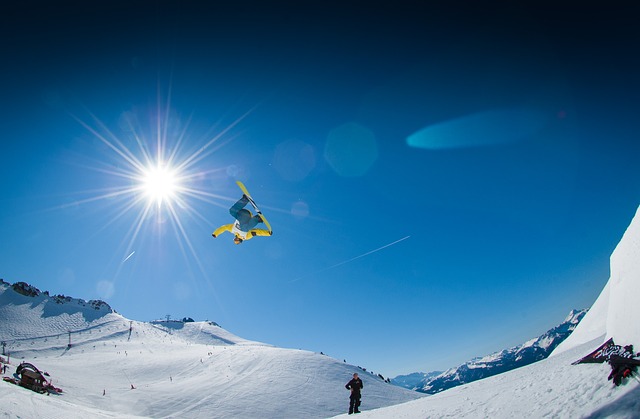
Image by Pexels CC0
Winter sports holidays are costly enough without having to fork out for overseas medical bills, and lets be honest – of all the holidays you take it’s going to be the one to snowy slopes that bring the most risks.
To help you understand what travel insurance you need and why (along with what to watch out for), here is a simple explanation of Wintersports Insurance.
What is wintersports insurance?
It is travel insurance tailored to the needs of people taking part in certain winter sports while they are on holiday. It takes into account the potentially bankrupting costs of treating a serious injury in near inaccessible places. Wintersports Insurance has additional extras such as cover for ski equipment, lost, stolen or unused ski passes, and offers compensation for piste closures.
What winter sports can it cover?
Loads! Skiing and snowboarding on-piste, off-piste, cross-country, and on dry slopes. Snowmobiling, heliskiing, sledging, tobogganing, ice skating, and glacier walking.
What level of cover is reasonable?
You’d want a minimum of £2.5 million for medical expenses – it might seem like a large amount, but it is to cover mountainside rescue and repatriation back to your home country if needed. You also need personal liability to be covered. £2 million is the recommended amount in case you cause someone else to injure themselves and they decide to sue you.
Check that you are covered for the following:
• Mountainside rescue
• Repatriation
• Injury to others
• Cancellation of holiday or flight
• Lost or stolen baggage
• Lost, damaged or stolen sports equipment
• Lost, stolen or unused ski passes
• Piste closure
How much does wintersports insurance cost?
Policies start from as little as £13.20 for 3 days for trips in Europe.
Do you still need an EHIC if you have travel insurance?
Yes. A European Health Insurance Card entitles you to state-provided healthcare, which in some areas and for some treatments may be free. The limitations of an EHIC are that it does not guarantee FREE medical treatment, and it won’t get you off a mountain and back home if you are badly injured.
What to watch out for
• Age restrictions – some insurers won’t provide cover for people over the age of 65. We cover skiers and snowboarders up to the age of 74.
• Pre existing medical restrictions – you must declare pre-existing problems, it is even worth mentioning historical issues. Telling your insurer won’t affect your ability to get cover, as certain medical conditions can be excluded, but they could affect any claim that you make if you don’t declare them.
• Limitations of “free” travel insurance policies – packaged bank accounts are one way to get ‘free’ travel insurance, but do be aware that they may not cover winter sports activities and therefore the medical help you may need in the event of an accident. Check your policy in advance and if it is not adequate consider getting a one-off wintersports policy rather than paying for an extension.
• The small print – read your policy carefully as there are terms and conditions that apply to any kind of insurance cover. Some of the reasons claims are not successful or insurance is withdrawn is because the policy holder was found to be under the influence of alcohol at the time of the accident, or was not following local safety rules.
